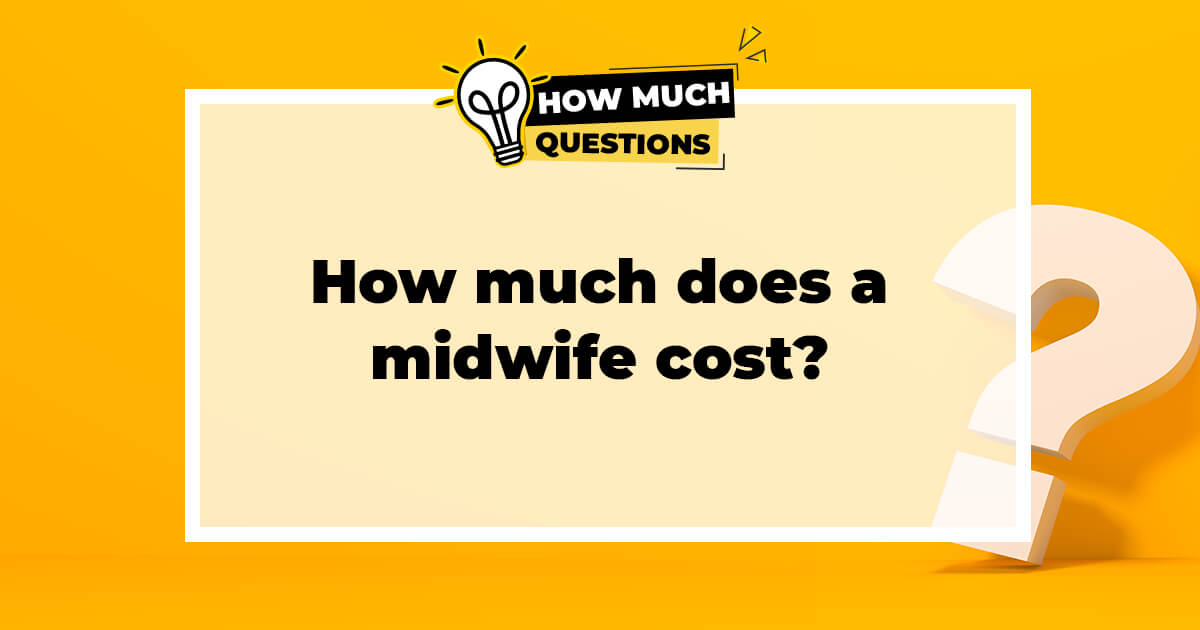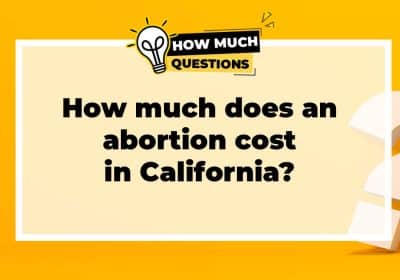
How much does a midwife cost?
Discover the factors affecting midwife costs and practical tips to save money while making informed choices.

Introduction
Are you considering the services of a midwife but unsure about the associated costs? Understanding the factors influencing the price can help you make an informed decision. In this guide, we'll explore the various aspects that affect midwife costs, offer tips to save money, and provide guidance for making optimal choices.
How Much Does a Midwife Cost?
The cost of hiring a midwife can vary significantly depending on various factors such as location, the type of midwife, and the services included in the package. Generally, the cost for midwifery care ranges from $3,000 to $7,000 for a basic maternity package. This package typically includes prenatal consultations, birthing care, and postpartum visits. It's important to note that some standard fees may not cover additional expenses like the use of facilities, supplies, and laboratory tests. If you're considering a home birth, out-of-pocket costs can range from $3,000 to $9,000 if insurance does not cover it. Prices are also subject to change based on the state or country you are in.
For a more accurate estimate, it's advisable to consult with local midwives and inquire about their specific pricing structures.
Factors Influencing Cost
Geographic Location
The cost of hiring a midwife can vary significantly depending on your location. In urban areas, midwives may charge higher fees due to increased living expenses. In contrast, midwives in rural areas may offer more affordable services.
Type of Midwife
There are different types of midwives, including Certified Nurse-Midwives (CNMs), Certified Midwives (CMs), and Certified Professional Midwives (CPMs). The type of midwife you choose can affect the cost, as CNMs and CMs may charge more due to their advanced training and medical qualifications.
Level of Experience
Experienced midwives with a long track record of successful births may charge higher fees than those who are just starting their careers. However, their expertise can provide added peace of mind.
Insurance Coverage
Check if your health insurance plan covers midwife services. Some plans may partially or fully cover midwifery, reducing your out-of-pocket expenses. Make sure to clarify the details with your insurance provider.
Home vs. Hospital Birth
Where you choose to give birth can impact the cost. Home births may involve additional expenses for equipment and supplies, while hospital births often have standard fees. Discuss your birth plan with your midwife to understand the cost implications.
Additional Services
Midwives may offer a range of services beyond prenatal and postpartum care, such as childbirth education and lactation consulting. These added services can influence the overall cost.
Pre-Purchase Considerations
Health and Safety
Before choosing a midwife, consider your health and safety, as well as that of your baby. Ensure that you have no high-risk factors that might require specialized medical care during pregnancy and childbirth.
Personal Preferences
Think about your birthing preferences and what type of experience you desire. Midwives often provide more personalized care, but it's essential to align your preferences with their approach.
Budget
Establish a clear budget for midwife services. This will help you narrow down your options and avoid any financial surprises down the road.
Cost-Saving Tips
- Insurance Review: Review your insurance plan to understand coverage for midwife services. Maximize any benefits that can reduce your expenses.
- Consider Home Birth: If it aligns with your preferences, consider a home birth to save on hospital facility fees.
- Comparison Shopping: Research and compare midwife fees in your area. Don't hesitate to ask for quotes from multiple midwives.
- Payment Plans: Inquire if your chosen midwife offers flexible payment plans to spread the cost over time.
Guidance for Optimal Choices
Choosing the right midwife is a critical decision. Here are some tips:
- Credentials: Ensure your midwife is certified and licensed in your state, providing evidence of their qualifications.
- Interview Multiple Midwives: Don't hesitate to interview multiple midwives to find the one whose approach aligns with your values and needs.
- References and Reviews: Check for client testimonials and reviews to gauge the midwife's reputation and track record.
- Open Communication: Establish clear communication with your midwife. Discuss your expectations and concerns openly.
Conclusion
In summary, the cost of hiring a midwife can vary based on factors like location, type of midwife, and experience. To make the best choice, consider your health, preferences, and budget. Saving money is possible with insurance coverage and cost-saving tips. Remember that the most crucial aspect is the safety and well-being of you and your baby. Seek professional advice to make an informed decision and have a positive childbirth experience.
This article is for informational purposes only. It is essential to consult with a healthcare professional or midwife for personalized guidance on your specific situation.
FAQ: Frequently Asked Questions
How much does a midwife cost on average?
The cost of hiring a midwife can vary widely depending on several factors such as location, type of midwife, and services included. On average, the cost ranges from $3,000 to $7,000 for a basic maternity package. This package usually includes prenatal consultations, birthing care, and postpartum visits. Additional costs may include facilities, supplies, and laboratory tests.
What is included in the midwife cost?
The basic maternity package generally includes prenatal consultations, birthing care, and postpartum visits. Some midwives may also offer additional services like lactation consulting and newborn care, which could incur extra charges.
Do midwives accept insurance?
Yes, many midwives do accept insurance, but it's essential to check with your specific insurance provider to see if midwife-led care is covered. Some health insurance companies may not cover you for midwife-led care, so it's crucial to verify this beforehand.
How does the cost of a midwife compare to a hospital birth?
The cost of a midwife is often significantly lower than what you would pay for a hospital birth, especially if you have a high deductible insurance plan. For example, if your deductible is $7,500, the midwife cost usually does not come close to that amount, making it a more affordable option for low-risk pregnancies.
What are the additional costs when hiring a midwife?
Additional costs may include the use of facilities, supplies, and laboratory tests. Some midwives may also charge extra for services like water births, home births, or specialized birthing techniques.
How much do prenatal visits with a midwife cost?
Prenatal visits typically cost between $50 and $200 per visit, depending on your location and the type of midwife you choose. The frequency of these visits may also vary, with most midwives recommending monthly visits during the first trimester, bi-weekly visits during the second trimester, and weekly visits during the third trimester.
Is the cost of a midwife different across states?
Yes, the cost of a midwife can vary depending on the state you are in. Some states may have higher or lower average costs for midwifery services, so it's advisable to consult local midwives for a more accurate estimate.
While most midwives offer transparent pricing, it's always a good idea to ask for a detailed breakdown of costs to avoid any surprises. Make sure to inquire about any additional fees for services that may not be included in the basic maternity package.
How much does a home birth with a midwife cost?
If you're considering a home birth, the out-of-pocket costs can range from $3,000 to $9,000 if your insurance does not cover it. This cost usually includes all prenatal visits, the birth itself, and postpartum visits.
What factors affect the cost of hiring a midwife?
Several factors can affect the cost of hiring a midwife, including the type of midwife (Certified Nurse Midwife vs. Direct-Entry Midwife), location, and the range of services offered. Some midwives may also offer sliding scale fees based on your ability to pay.
If you want to know other articles similar to How much does a midwife cost? you can visit the category Medical and Dental.
- Introduction
- How Much Does a Midwife Cost?
- Factors Influencing Cost
- Pre-Purchase Considerations
- Cost-Saving Tips
- Guidance for Optimal Choices
- Conclusion
- FAQ: Frequently Asked Questions
- How much does a midwife cost on average?
- What is included in the midwife cost?
- Do midwives accept insurance?
- How does the cost of a midwife compare to a hospital birth?
- What are the additional costs when hiring a midwife?
- How much do prenatal visits with a midwife cost?
- Is the cost of a midwife different across states?
- Are there any hidden costs when hiring a midwife?
- How much does a home birth with a midwife cost?
- What factors affect the cost of hiring a midwife?
Leave a Reply







You might be interested in